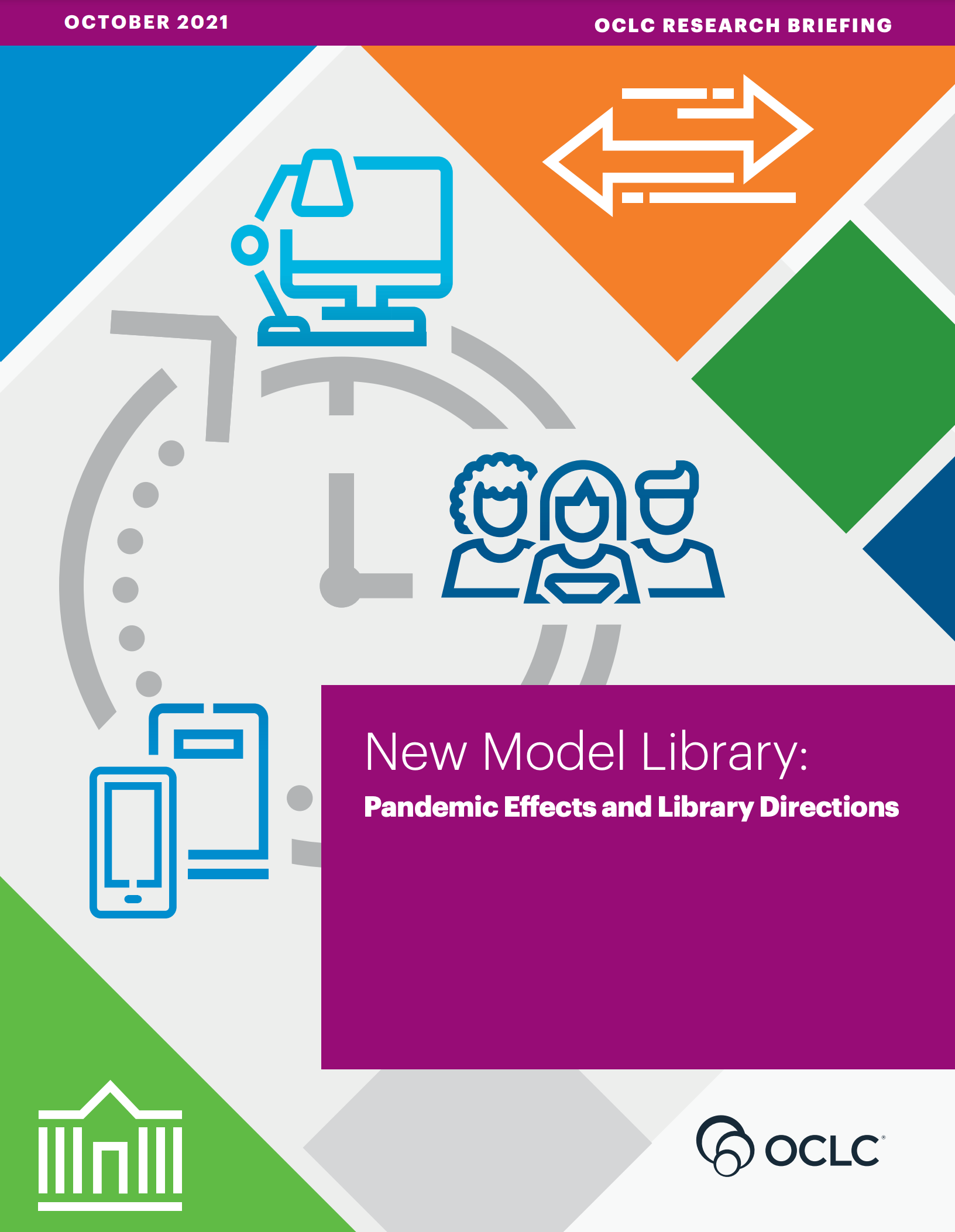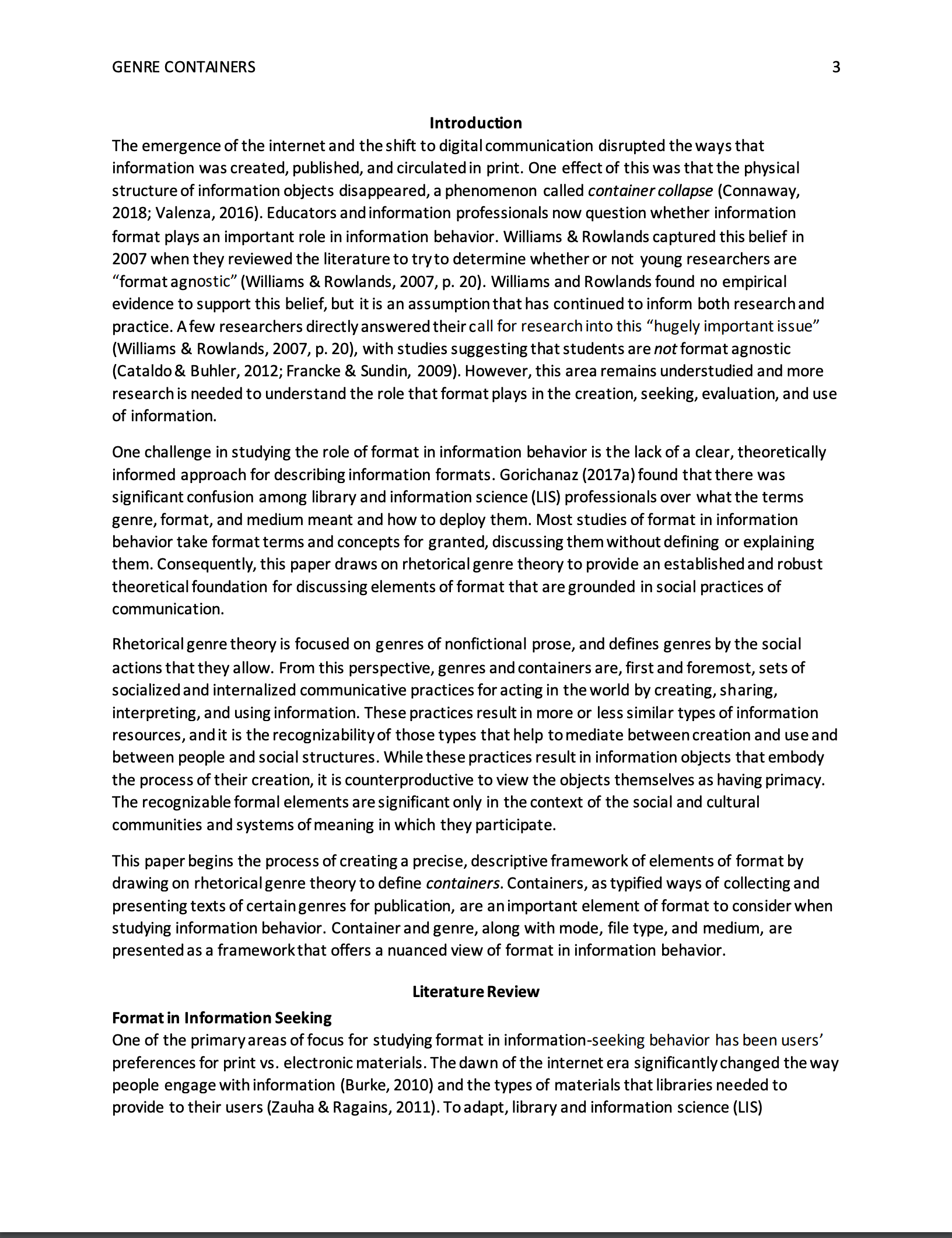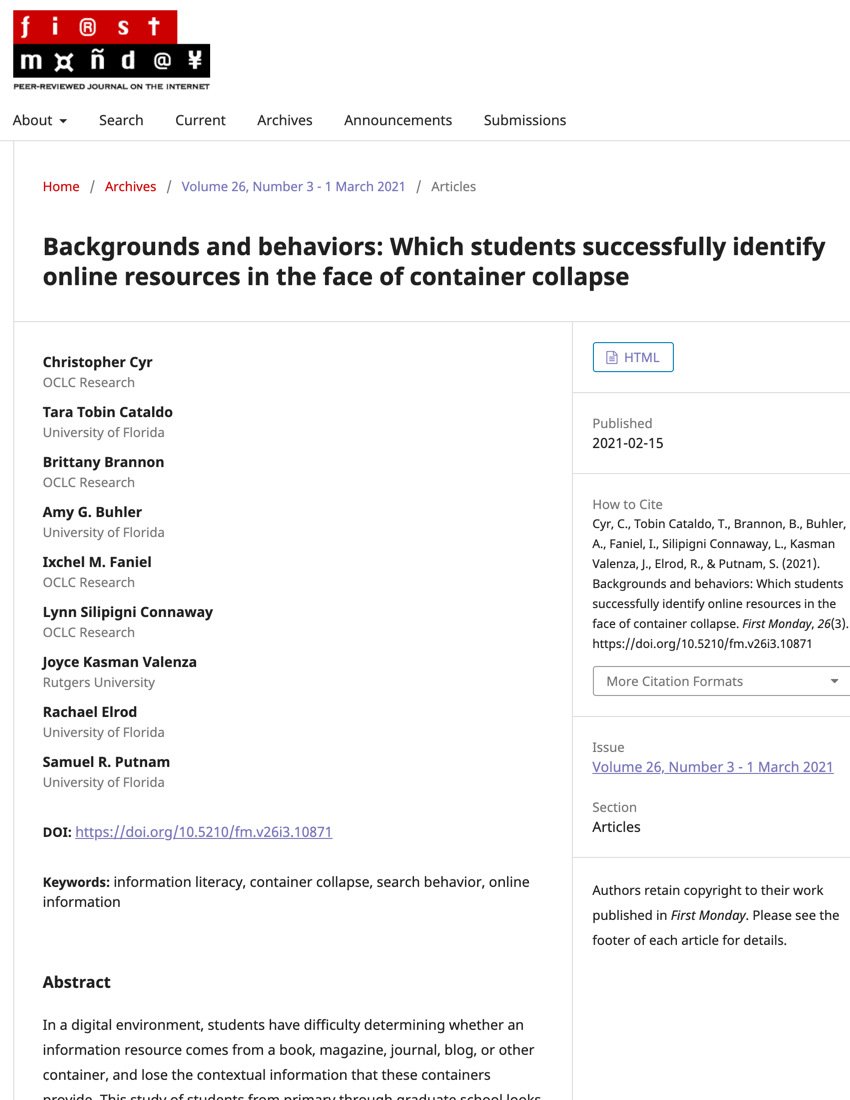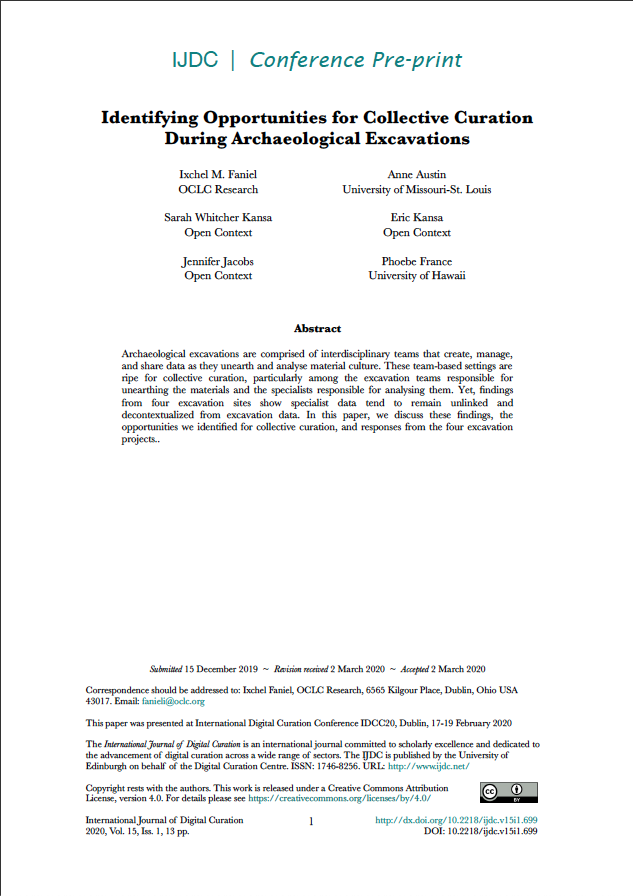-

New Model Library: Pandemic Effects and Library Directions
28 October 2021
Lynn Silipigni Connaway, Ixchel M. Faniel, Brittany Brannon, Joanne Cantrell, Christopher Cyr, Brooke Doyle, Peggy Gallagher, Kem Lang, Brian Lavoie, Janet Mason, and Titia van der Werf
The COVID-19 pandemic impacted libraries of all types around the world, requiring library leaders to respond to rapidly shifting community and institutional needs. This briefing shares how leaders adapted during the pandemic and what they envision moving forward to help libraries plan strategically.
-

Genre Containers: Building a Theoretical Framework for Studying Formats in Information Behavior
26 October 2021
Brittany Brannon, Amy G. Buhler, Tara Tobin Cataldo, Ixchel M. Faniel, Lynn Silipigni Connaway, Joyce Kasman Valenza, Christopher Cyr
Prior studies have shown high-level differences in people's perception and use of various information formats. However, the lack of a coherent and theoretically informed framework of elements of format has inhibited a nuanced understanding of the role that formats play in information behavior. This paper draws on theories from the field of rhetoric and composition to ground the study of information format in a social constructivist perspective that foregrounds action in context.
-
Using collective curation to pay data forward in the life cycle
11 June 2021
Ixchel M. Faniel
Drawing from a study of archaeological excavation teams, four collective curation opportunities are proposed to identify and resolve differences in data and documentation practices that arise in team-based research. To create more integrated, well-documented data, the opportunities attend to integrating people rather than technology. The actions people take as data move through the life cycle become the focal point of change.
-

Backgrounds and behaviors: Which students successfully identify online resources in the face of container collapse
15 February 2021
Christopher Cyr, Tara Tobin, Brittany Brannon, Amy G. Buhler, Ixchel M. Faniel, Lynn Silipigni Connaway, Joyce Kasman Valenza, Rachael Elrod, Samuel R. Putnam
This study of students from primary through graduate school looks at their ability to identify the containers of information resources, and how this ability is affected by their demographic traits, the resource features they attended to, and their behaviors during a task-based simulation.
-

Identifying Opportunities for Collective Curation during Archaeological Excavations
6 August 2020
Ixchel Faniel, Anne Austin, Sarah Whitcher Kansa, Eric Kansa, Jennifer Jacobs, Phoebe France
Archaeological excavations are comprised of interdisciplinary teams that create, manage, and share data as they unearth and analyse material culture. These team-based settings are ripe for collective curation during these data lifecycle stages. However, findings from four excavation sites show that the data interdisciplinary teams create are not well integrated. Knowing this, we recommended opportunities for collective curation to improve use and reuse of the data within and outside of the team.
